As a BetterHelp affiliate, we receive compensation from BetterHelp if you purchase products or services through the links provided
When a loved one with post-traumatic stress disorder (PTSD) pushes you away, it can feel confusing and hurtful. PTSD is a mental health condition triggered by experiencing or witnessing terrifying events, and its effects vary from person to person. Those with PTSD often have difficulty trusting others and may distance themselves to protect their emotional state.
It’s important to recognize that being pushed away is not a reflection of your relationship’s value but rather a sign that your loved one with PTSD is struggling. Patience, understanding, and empathy are essential in helping them navigate through this challenging time. By learning more about PTSD and how to support those experiencing it, you can maintain a strong connection and promote healing even when faced with distance.
Key Takeaways
- Educate yourself about PTSD to better understand the challenges faced by your loved one.
- Approach the situation with empathy and compassion, focusing on open communication.
- Seek professional support self-care for caregivers and engage in support groups to foster a healthy and supportive environment.
 Understanding PTSD
Understanding PTSD
PTSD and the Limbic System
Post-traumatic stress disorder (PTSD) is a mental health condition that develops after experiencing or witnessing a traumatic event. Your brain’s limbic system, which includes structures like the amygdala, hippocampus, and hypothalamus, plays a crucial role in processing these events. These parts of the brain regulate emotional responses, memory, and fear control. The limbic system can become overactive when trauma occurs, leading to PTSD symptoms. Understanding this connection can help you empathize with the person pushing you away.
Symptoms of PTSD
People with PTSD may experience a range of symptoms, such as:
- Intense, distressing memories or flashbacks of the event
- Avoidance of people, places, or situations that remind them of their trauma
- Emotional numbness or detachment from others
- Hypervigilance or exaggerated startle response
- Sleep disturbances, including nightmares
- Negative thoughts and feelings, such as guilt, shame, or self-blame
Being aware of these symptoms can help you better understand why someone with PTSD might push you away as a way to cope.
 Internal and External Triggers
Internal and External Triggers
Triggers are specific stimuli that can set off PTSD symptoms. They can be external, such as sights, sounds, smells, or places that resemble the traumatic event, or internal, such as thoughts, feelings, or physical sensations. These triggers can make someone with PTSD feel like they are reliving the event and can lead to intense emotional reactions. Here are some examples of internal and external triggers:
- External triggers: loud noises, specific locations, movies, or news reports about similar events
- Internal triggers: fatigue, feelings of vulnerability, memories, or certain bodily sensations
When someone with PTSD pushes you away, it could be due to internal or external triggers. Recognizing these triggers, you can support them better and maintain a healthy relationship.
Feeling Pushed Away
Irritability and Anger
When someone with PTSD is experiencing irritability and anger, it’s important to remember that it’s not about you. They might lash out or become angry, but it’s because they’re feeling overwhelmed and vulnerable. Try to remain patient and understanding in these moments. Here are a few tips to help:
- When they get angry, remind yourself that it’s not personal.
- Give them space to cool down if needed.
- Listen and validate their emotions without judgment.
- Encourage them to seek professional help for managing their anger.
Isolation
Isolation can be one of the ways someone with PTSD might push you away. It’s not unusual for people with PTSD to withdraw from friends and family out of fear or shame. When this happens, it’s essential to be sensitive to their feelings and provide support without pushing them. Consider the following approaches:
- Keep communication lines open by checking in on them periodically.
- Invite them to engage in activities without pressuring them to participate.
- Offer a listening ear and a safe space for them to open up when ready.
- Encourage them to seek professional help if their isolation becomes severe.
Remember, your support and understanding can make a difference for someone with PTSD. With patience and empathy, you can help them navigate their way back to a healthy and fulfilling life.
 Communicate with Empathy
Communicate with Empathy
When someone with PTSD pushes you away, it’s essential to communicate with empathy. This means showing understanding and compassion for the person’s feelings and experiences. Here are some strategies to help you communicate more effectively and help maintain a healthy relationship.
Active Listening
One of the keys to empathetic communication is active listening. To practice active listening, you should:
- Maintain eye contact: Show that you’re paying attention by looking at the person speaking.
- Nod and acknowledge: Nod or make a small sound to show you’re listening and following their thoughts.
- Listen without interrupting: Let the person finish speaking before you respond. Avoid the urge to interject with your own opinions or experiences.
- Repeat back what you’ve heard: Briefly summarize the main points to show that you’ve been listening and to check for understanding.
- Ask open-ended questions: Encourage the person to share more by asking questions that can’t be answered with a simple “yes” or “no.”
Respecting Boundaries
During conversations, it’s crucial to respect the other person’s boundaries. Here are some tips to help you with this:
- Avoid pressuring: Don’t pressure the person to share more than they’re comfortable with.
- Be patient: Acknowledge that healing from PTSD takes time and that being at different stages of the process is okay.
- Give space: Recognize when the person needs space and support their requests.
- Reaffirm your care: Let the person know that you care about them, regardless of their current situation or how much they can share.
By utilizing empathy, active listening, and respecting boundaries, you can maintain a supportive and caring relationship with someone who has PTSD, even when they may push you away. Remember that your kindness and understanding can make a difference, and by demonstrating patience and compassion, you’ll create a safe space for the person to feel understood and supported.
 Supporting Loved Ones
Supporting Loved Ones
Creating a Safe Space
It’s essential to create a safe and comforting environment when supporting a loved one with PTSD. You can help by:
- Listening actively: Let them know you’re there to listen without judgment and resist the urge to advise unless they request it.
- Being patient: Healing takes time, so don’t push them to open up. Offer encouragement and be available when they’re ready to talk.
- Maintaining routines: Familiarity can be comforting, so help them keep normal routines and activities.
- Respecting boundaries: Give them space when needed, but remind them you’re there for support.
Understanding Grief and Fear
Grieving and fear are common emotions experienced by people with PTSD. Here’s how you can support them:
- Empathize with their feelings: Acknowledge their pain and let them know it’s okay to feel the way they do.
- Reassure their safety: Remind them that they’re safe now and help them identify strategies to feel secure, like breathing techniques or grounding exercises.
- Encourage coping strategies: Suggest coping mechanisms, such as writing, art, or exercise to help manage their emotions.
- Avoid triggers: Work together to identify their triggers and find ways to minimize exposure or develop calming strategies when they’re unavoidable.
By putting in the effort to create a safe space and understanding your loved one’s grief and fear, you’ll be better equipped to support their journey toward healing. Remember to be patient, empathetic, and respectful of their needs and boundaries.

Professional Support
Mental Health Professionals
When dealing with PTSD, you must seek professional support, as they can provide tailored guidance based on your situation. It’s important to find a trauma-informed mental health professional experienced in helping people with PTSD. They will listen and understand your experience, ensuring you receive the appropriate care.
There are several ways to find a mental health professional:
- Ask your primary care doctor for a referral
- Talk to your insurance company to find in-network providers
- Search online directories for local therapists
- Ask friends or family for recommendations
Types of Therapy
Once you find a mental health professional, explore different types of therapy that may work best for your situation. Some effective therapies for PTSD include:
- Cognitive Behavioral Therapy (CBT) focuses on changing unhealthy thought patterns and behaviors. It’s particularly helpful in managing anger, anxiety, depression, and other difficulties related to PTSD.
- Eye Movement Desensitization and Reprocessing (EMDR): EMDR is a specialized therapy designed to help you process traumatic memories. It uses bilateral stimulation, such as eye movements or tapping, to facilitate processing these memories.
- Group Therapy: Participating in group therapy sessions can be beneficial, allowing you to connect with others with similar experiences. It provides a safe and supportive environment where you can share your thoughts and feelings and learn coping strategies from one another.
Remember, seeking professional support and finding the appropriate therapy are vital steps in overcoming the impact of PTSD on your life. Give yourself time to heal, and don’t hesitate to reach out if someone with PTSD pushes you away.
 Self-Care for the Caregiver
Self-Care for the Caregiver
Importance of Self-Care
When supporting someone with PTSD, it’s essential for you, the caregiver, to prioritize your self-care. Feeling worn down or burnt out can significantly affect your mental, emotional, and physical well-being. Remember, if you don’t care for yourself, you won’t be able to help your loved one. So, practicing self-care should become a non-negotiable aspect of your daily life.
Here are some self-care tips:
- Create a relaxing space: Decorate your home with calming elements and eliminate clutter to create a sanctuary for unwinding.
- Prioritize sleep: Establish a sleep schedule, ensuring you get enough rest.
- Engage in hobbies you enjoy: Set aside time for activities that bring you joy and allow you to express yourself.
- Take breaks: It’s vital to step back and take a breather when you need it.
- Seek a support network: Connecting with others who are going through similar experiences can help alleviate stress and provide reassurance.
Establishing Routines
Developing healthy routines is crucial for maintaining stability in your life. Routines provide a structure that can help you manage your time and energy more effectively, and they can be especially beneficial when you’re dealing with the unpredictability of PTSD.
Here are some steps to establish routines:
- List important daily tasks, such as exercise, meditation, and meal preparation.
- Organize your tasks by priority, ensuring the most critical items are completed first.
- Allocate a specific period for each task and adhere to these timeframes.
- Create a weekly schedule incorporating your routines, other commitments, and appointments.
- Adjust your plan as needed, being flexible enough to accommodate possible changes.
As a caregiver, incorporating self-care and routines into your life is essential to maintaining a healthy, balanced lifestyle. By caring for yourself and sticking to your routines, you’ll be better equipped to support your loved one with PTSD while keeping your well-being intact.
 Support Systems and Groups
Support Systems and Groups
Why Support Groups Matter
When dealing with a person who has PTSD and pushes you away, it’s crucial to surround yourself with a supportive network. Support groups provide a non-judgmental and understanding environment for people in similar situations. They allow you to share your experiences, learn coping strategies, and find emotional support from others who genuinely understand.
- Support groups help reduce feelings of isolation and loneliness.
- They offer a safe space to express emotions and seek advice.
- Members can exchange useful resources and information about coping with someone with PTSD.
Role of Support System
A robust support system is essential not only for the person with PTSD but also for you. It can include friends, family, colleagues, or professionals such as therapists and support group members. A strong support system can help in the following ways:
- Providing emotional support when the person with PTSD pushes you away.
- Sharing practical advice on managing difficult situations with the person with PTSD.
- Offering a perspective that challenges negative thoughts and promotes self-care.
- Encouraging healthy coping mechanisms and self-expression.
Here are some tips to build and maintain a support system:
- Reach out to friends and family.
- Attend local support group meetings or join online forums.
- Speak with a mental health professional, such as a therapist or counselor.
- Engage in social activities where you can connect with people in similar situations.
- Maintain open and honest communication with those in your support system.
Remember, it’s important to prioritize your well-being as you navigate this journey. Lean on your support system and be willing to seek help when needed.
The Healing Journey
Remember that healing from PTSD is a journey. It’s essential to approach this journey with patience and understanding, as it may take time for your loved one to recover. Here are a few suggestions for supporting someone with PTSD who pushes you away:
- Build Trust: When someone with PTSD pushes you away, it’s crucial to establish trust. Show your emotional support by being open, honest, and genuine. Ensure you’re there for them – regardless of how long it takes.
- Practice Patience: Understand that their healing process may not happen overnight. You may need to be patient during this time, as the person you support may not always respond positively to your efforts. Keep in mind that progress might be slow and inconsistent.
- Encourage Self-Care: Encourage them to practice self-care, both physically and mentally. This includes exercising, maintaining a healthy diet, meditating, or pursuing hobbies that bring joy and relaxation.
- Seek Professional Help: Sometimes, despite your best efforts, professional help is needed for people with PTSD. Encourage your loved one to seek therapy or counseling, and let them know you support their decision.
Remember, you’re part of their healing journey; your support can make a significant difference. By fostering trust, practicing patience, and encouraging self-care, you help create a safe space that allows them to heal at their own pace.
Frequently Asked Questions
 How can I support a loved one with PTSD?
How can I support a loved one with PTSD?
To support a loved one with PTSD, consider the following:
- Educate yourself about PTSD to better understand the experience
- Offer a listening ear without judgment or unsolicited advice
- Validate their feelings and the reality of their experiences
- Encourage them to seek professional help and offer assistance if needed
- Be patient and understanding with their healing process
What are effective ways to communicate with someone with PTSD?
When communicating with someone with PTSD, try these strategies:
- Use gentle, non-confrontational language
- Practice reflective listening by summarizing what they’ve shared
- Avoid pressuring them to share their experiences
- Focus on their present emotions and concerns
- Respect their boundaries and never force a conversation
Why do those with PTSD often withdraw from relationships?
Those with PTSD may withdraw from others for various reasons:
- Feeling overwhelmed by the burden of their emotions
- Believing others won’t understand or empathize with their experiences
- Fear of being judged or misunderstood
- Feeling shame or guilt
- Desire to protect loved ones from their distress
How can I maintain a connection when someone with PTSD becomes distant?
Staying connected with someone experiencing distancing behavior due to PTSD can be achieved by:
- Respecting their need for space and letting them know you’re available when they’re ready
- Offering encouragement, reassurance, and comfort
- Engaging in activities together that are known to provide enjoyment or relaxation
- Establishing a routine for keeping in touch without being intrusive
What are the signs of PTSD affecting relationships?
Some signs that PTSD may be impacting a relationship include:
- Increased conflict or tension between partners
- Withdrawal or emotional disengagement from one another
- Difficulty trusting or feeling safe with one another
- Miscommunication or misunderstanding each other’s needs
- Interruptions in daily routines and shared activities
How can therapy help when a person with PTSD pushes others away?
Therapy can be beneficial by:
- Providing a safe space to process feelings and experiences
- Identifying triggers and developing coping strategies
- Offering skills for effective communication with loved ones
- Addressing feelings of shame, guilt, or fear related to relationships
- Reinforcing the importance of maintaining supportive connections with others
? About The Author: Jacob Maslow ?
? Life’s Rollercoaster: My Journey ?
Hey there, I’m Jacob Maslow, and I’ve walked through the highs and lows of life, experiencing them in all their complexities. I survived the tragic 9/11 attacks, working on the 101st floor and losing over a thousand co-workers. After transitioning to remote work, I took on the full-time role of raising our kids while my ex worked tirelessly, often through the night.
? From Two Households to Empty Bedrooms ?
Life took a sharp turn recently. I went from sharing the joys and challenges of co-parenting in two harmonious households to an eerie silence. I now live alone in a 3-bedroom apartment with two empty bedrooms that I pass by daily—a constant reminder of my severed connection with my kids.
? Tools for Coping: My BetterHelp Experience ?
BetterHelp has been a cornerstone in helping me navigate through this difficult time. I can’t recommend them highly enough; I’m a client and affiliate.
? Mind Matters: My Mental Health Routine ?
I take Lexapro to help manage my mental health and am no stranger to therapy. I’ve recently joined BetterHelp to continue my healing journey.
? The Narcissist’s Theater: Dealing with My Ex ?
Unfortunately, my ex has taken a destructive path, showing signs of severe narcissism, especially as the years have gone by. She’s sabotaged community leaders through affairs and smear campaigns. Now, she’s alienated our kids, refusing to honor any court-ordered shared custody agreements.
? Empowering Others: Why I Write ?
Writing articles on mental health and narcissism helps me, and I hope it can help you, too. I even run a legal site to assist others with partners unwilling to follow court orders or co-parent respectfully.
?♂️ Daily Ritual: Long Walks ?
To clear my mind, I take long, contemplative walks every day. Nature becomes a sanctuary, a place to escape and ponder.
✊ You’re Not Alone: We Can Overcome ✊
Remember that mental health challenges can be conquered no matter the issues you’re facing. We’re in this together.
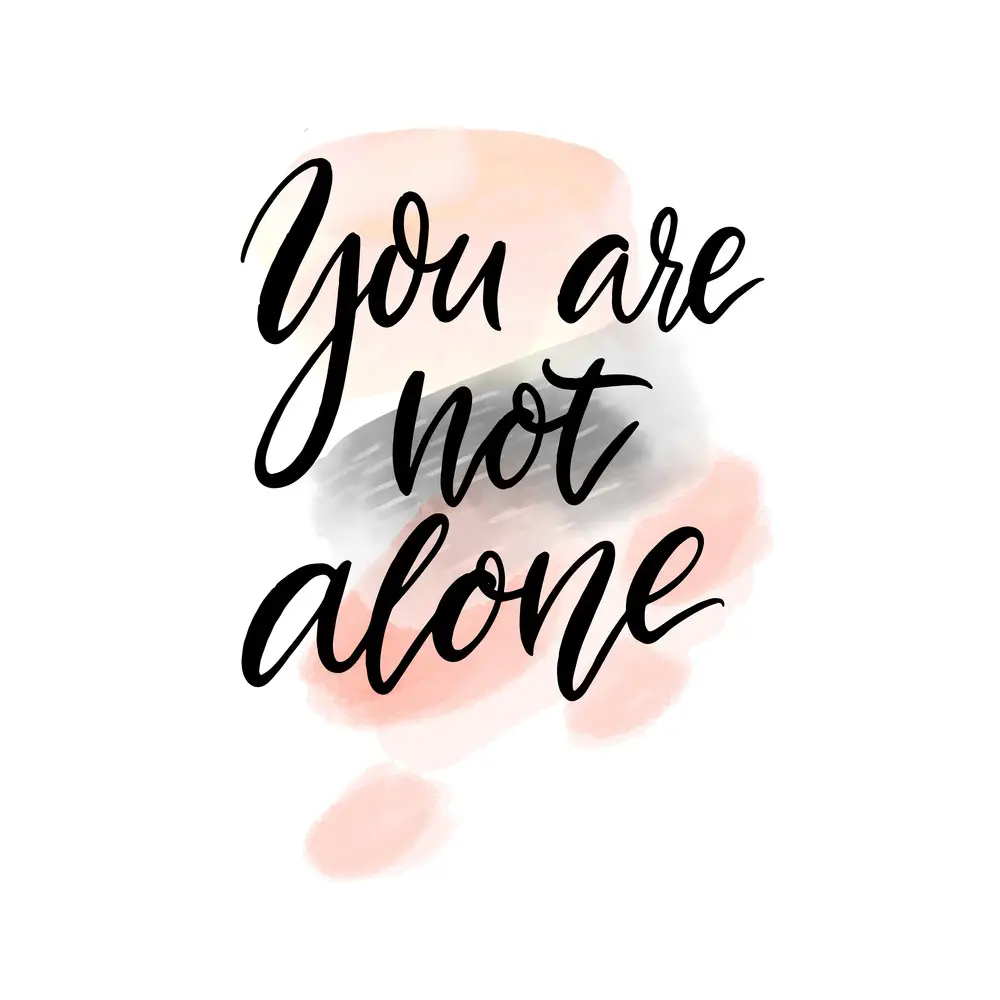
- 7 Ideas to Help You Relax and Unwind on a Family Vacation - April 27, 2025
- How Having Cybersecurity Protection Helps You Relax - April 25, 2025
- 8 Reasons Why Spending Time Outside Calms You Down - April 25, 2025
This site contains affiliate links to products. We will receive a commission for purchases made through these links.

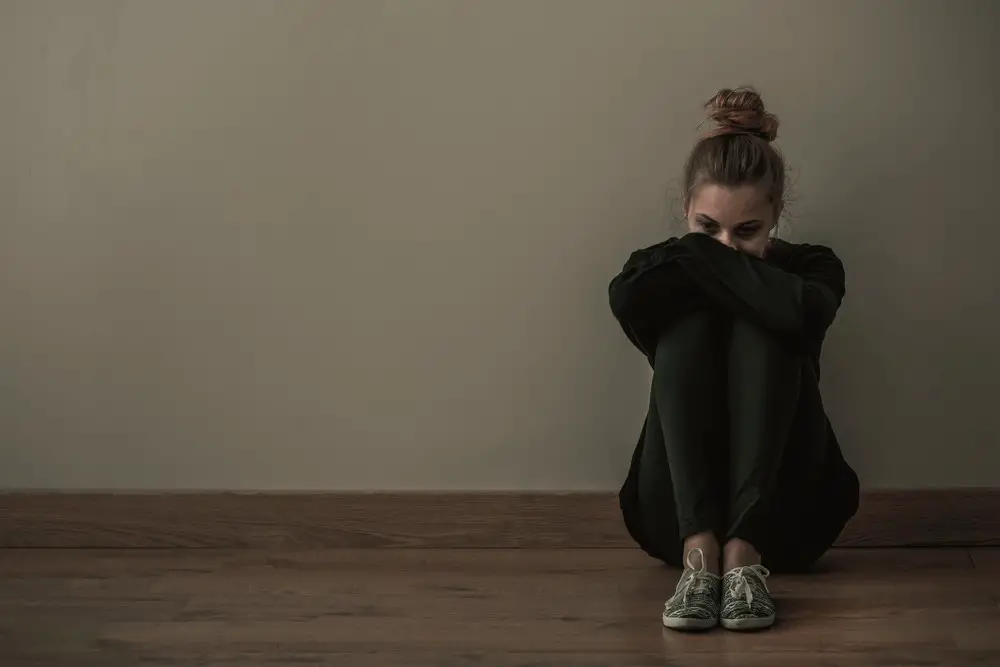
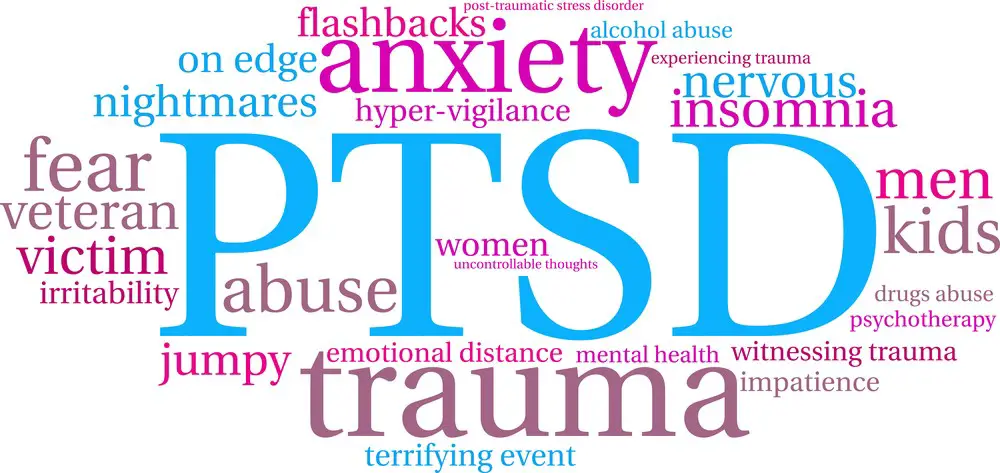 Understanding PTSD
Understanding PTSD Internal and External Triggers
Internal and External Triggers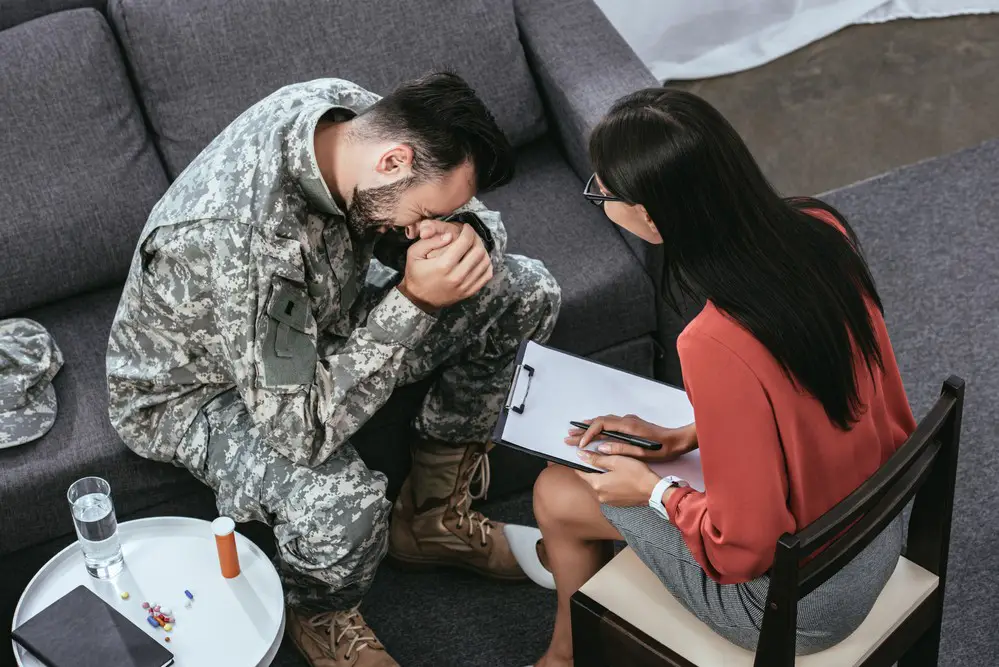 Communicate with Empathy
Communicate with Empathy Supporting Loved Ones
Supporting Loved Ones Self-Care for the Caregiver
Self-Care for the Caregiver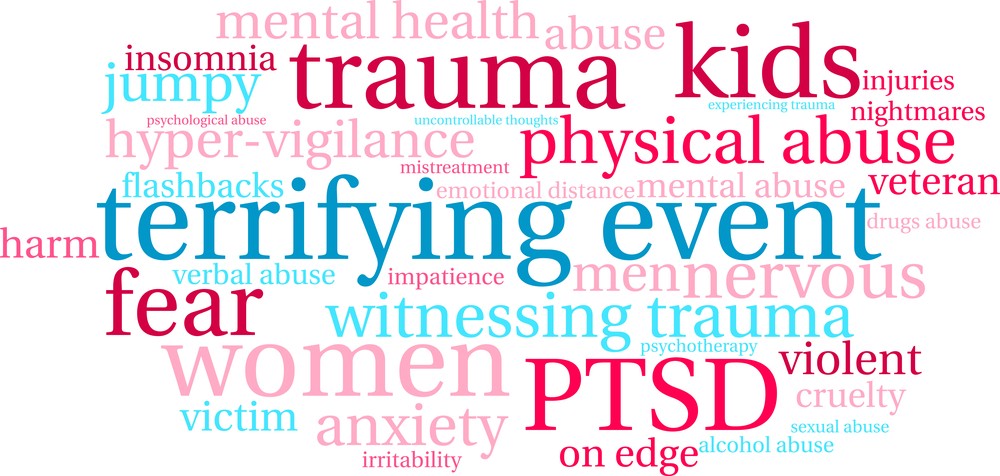 Support Systems and Groups
Support Systems and Groups How can I support a loved one with PTSD?
How can I support a loved one with PTSD?
